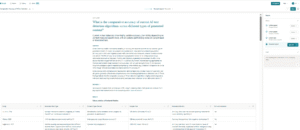Your grades won’t improve just because you “use AI.”
They will improve thanks to simple, free tools that help you learn faster—without crossing academic lines.
That’s the point of this guide. You’ll find tools that start in one minute, run on your phone or browser, and come with free plans.
| Rank | AI Tool | What it is | Pricing (summary) | Stand-out Feature(s) |
|---|---|---|---|---|
| 1 | ChatGPT | General-purpose assistant for research, outlining, drafting, coding | Free; Plus $20/mo; Pro ~$200/mo; “Go” ₹399/mo (IN) | Built-in web answers w/ citations, files/images/voice, projects & custom GPTs, macOS app niceties |
| 2 | Aithor | Student-focused essay workspace with generator, rewriter & citations | Free start; paid from ~$12.5/mo (annual) / monthly options | Topic→outline→draft flows, APA/MLA/Chicago/Harvard builder, highlight-to-rewrite, “AI disguise” personalization |
| 3 | QuillBot | Paraphraser with grammar, summarizer & free citation generator | Free; Premium increases limits & tools | Multi-mode paraphrasing, tone tools, plagiarism checker (premium) |
| 4 | Gemini for Students | Google’s student program unlocking Gemini Advanced/AI Pro | Free for 1 year in eligible regions; then standard AI Premium pricing | Deep Research, Audio Overviews, tight Docs/Slides tie-ins |
| 5 | Brainly (AI Learning Companion) | Community + AI homework help with expert-verified answers | Free w/ ads; ad-free from ~$3/mo; human tutor add-ons in some regions | AI tutor mode, textbook solutions, parent/child pairing & moderation |
| 6 | Photomath | Camera-based math helper with step-by-step explanations | Free app; Photomath Plus ~$9.99/mo | Scans handwritten/printed problems, multiple solving methods, calculator |
| 7 | Google NotebookLM | Source-grounded research notebook with audio/video overviews & mind maps | Free (usage limits) | Grounded chat w/ citations, Discover sources, Audio/Video Overviews, mind maps |
| 8 | LanguageTool (Free) | Multilingual grammar/style checker with quick browser setup | Free; Premium adds deeper checks & higher limits | 25+ languages, extensions for Chrome/Edge/Docs, light paraphrasing & tone |
| 9 | Perplexity (Free + Pro) | Live-web answer engine with citations and Deep Research reports | Free; Pro $20/mo or $200/yr; student promos available | Citation-first answers, Deep Research multi-step reports, new “Comet” browser |
| 10 | Consensus | Academic search engine that answers with evidence from papers | Free tier; paid Pro/Deep tiers for heavier research | 200M+ papers, evidence summaries, Study Snapshots, easy click-through to originals |
| 11 | Elicit | Research assistant for literature reviews & data extraction | Free Basic; Plus/Pro/Team add volume & exports | Custom tables, “Ask Paper,” quote-level sourcing, RIS/CSV/BIB exports |
| 12 | SciSpace (Chat with PDF + Research Agent) | Research workspace with PDF chat and AI writer grounded in literature | Free for Chat with PDF; premium unlocks Agent & higher limits | Citation-linked answers to exact passages, 280M+ paper index, task library |
| 13 | Grammarly (Free) | Real-time grammar/clarity assistant with optional AI tools & agents | Free core checks; upgrades add plagiarism & advanced suggestions | Works across browsers/Docs/Word/mail; citation helper & essay checker hub |
| 14 | Wordtune (Free) | Focused rewriter/summarizer with generous free actions | Free; paid plans expand rewrites & limits | Rewrite/shorten/expand, web editor + extension, quick summaries |
| 15 | Microsoft Copilot (Education access) | AI chat/writing help from Microsoft; great inside the MS ecosystem | Free Copilot Chat with A1/A3/A5 school accounts; 365 Copilot is paid | Outlines, thesis options, counterarguments, study prompts; Word/PowerPoint tie-ins during promos |
| 16 | Wolfram | Alpha (Free & Student Pro) | Computational engine for math, physics, chem, stats, and more | Basic free; Student Pro $5/mo billed annually ($60/yr) or $9.99 monthly | Step-by-step solutions, guided calculators, extended compute time |
| 17 | Mathpix Snip (OCR for equations/LaTeX) | STEM-centric OCR turning images/PDFs into LaTeX, MathML, DOCX, MD | Free & Educational caps; Pro plans expand quotas | High-accuracy math & chem OCR, desktop/web/mobile apps, Overleaf/Word friendly |
ChatGPT
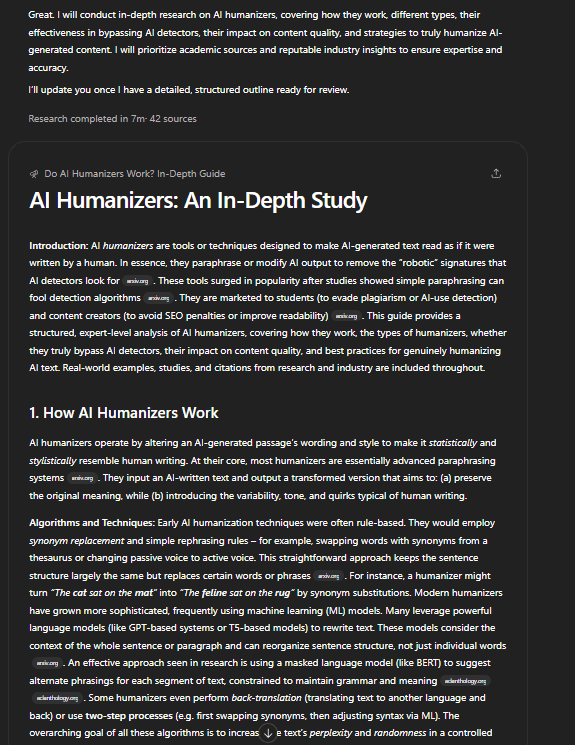
What it is
A general-purpose AI assistant for researching, outlining, drafting, coding. Good for brainstorming, study answers with sources (via built-in search), quick rewrites, and slide/essay scaffolds.
Features
- Models & context. Free accounts can use GPT-4o a limited number of times in a five-hour window; when you hit the cap, the app switches to a lighter model (now branded “mini”). This preserves access but lowers reasoning power until the window resets.
- Projects & custom GPTs. Organize work in projects and use or create custom GPTs for tasks like citations, outlines, or code. Handy when classes span multiple subjects.
- Live web answers with citations. Built-in Search lets you pull current sources into the chat (fewer copy-paste steps). Use this for fact-checking and link collection.
- Files, images, and voice. Upload docs, data, and images; record or play voice responses; generate images. Free users get limited access, while paid tiers increase capacity and priority.
- Desktop niceties (Mac). The macOS app adds quick code edits and system-level shortcuts, useful if you study or code on a laptop.
- Usage limits explained. Expect a moving cap (often ~10–60 GPT-4o messages per 5-hour window) depending on load; after that you’re on a mini model until the clock resets or you upgrade. Third-party breakdowns mirror this pattern.
- Model updates. OpenAI periodically upgrades free and paid defaults (e.g., newer GPT-4.x/mini variants, lightweight Deep Research access for a few tasks). Plan for incremental improvements over the term.
Pricing
- Free. $0. Modern model access with rate limits; limited files/voice/images; search; custom GPTs; projects. Good enough for most day-to-day study tasks.
- Plus. $20/month. Faster responses, higher limits, priority access to new models/features. A common choice when you draft often or hit caps. Independent explainers still cite $20 as the individual upgrade price.
- Pro (power users). Around $200/month for heavy usage, top models, and fewer rate limits—overkill for most students but notable in labs/research groups.
- Regional/education notes. In India, OpenAI launched ChatGPT Go (₹399/mo) as a lower-cost step between Free and Plus; it improves message/file quotas and includes advanced models. Availability may expand later. If your school provides A1/A3/A5 Microsoft accounts, you also get Copilot Chat free, which can complement or reduce your ChatGPT usage.
Aithor
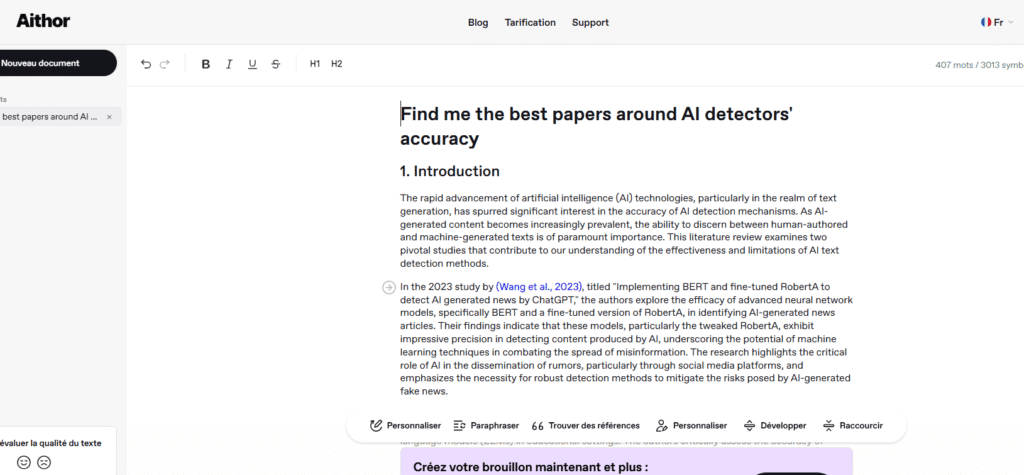
What it is
A student-oriented AI writing workspace focused on essay writing. It bundles an essay generator, paraphraser/rewriter, outline creator, and a built-in citation builder (APA/MLA/Chicago/Harvard). Use it for structure, rewrites, and reference formatting.
Features
- Essay & paper generators. Kick off a draft from a topic or prompt, then expand sections with “AI actions.” The editor supports highlight-to-rewrite, expand, or shorten—useful for fixing awkward passages without losing meaning.
- Paraphraser / rewriter toolkit. Sentence-level paraphrasing, paragraph rewrites, and a general rewriter tool live in the same dashboard. This is handy when you need to reduce repetition or adapt tone. (Always check against your academic integrity policy.)
- Reference builder. Auto-formats citations and reference lists in MLA, APA, Chicago, and more. Good for assembling a clean bibliography as you draft; cross-check each item to ensure it matches the source.
- Focused student UX. Templates for essays, literature reviews, abstracts, introductions, and conclusions keep the structure clear. A “paper writer” flow is designed around common assignment types.
- Originality helpers. Site copy mentions “AI disguise”/personalization features to align output with your style. Use with caution and always disclose tool use if your school requires it; treat these as drafting aids, not a way to evade detection.
- Free web tools. Public pages expose a free paraphraser/rewriter you can try before creating an account—useful for quick testing.
Pricing
- Free start. Aithor offers a free tier that lets you try core generation/rewriting with daily word caps (reviewers report limits like ~200 AI-generated words/day on free accounts; caps can change). It’s enough to test the workflow and citation builder.
- Paid plans. The subscription page lists a plan around $12.5/month on annual billing (and monthly options) with “unlimited” style usage noted in the grid; exact quotas and promos vary by region and time. Expect higher limits, more modes, and ad-free editing on paid tiers.
QuillBot
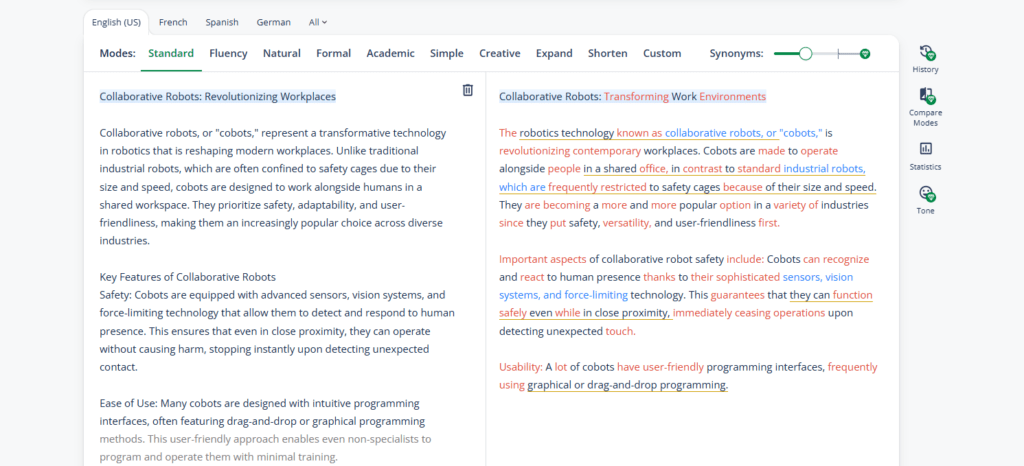
What it is
A paraphraser with a built-in grammar checker, summarizer, and a free citation generator—handy for polishing sections and formatting references. Popular with students because it bundles many tools under one login.
Features
- Paraphraser with multiple modes, plus grammar checker and tone tools in the same dashboard.
- Free Citation Generator for APA/MLA/Chicago/Harvard; fast export into your paper.
- Premium plan adds higher limits, faster processing, plagiarism checker, and more modes.
Pricing
- Free tier with limited paraphrasing and core tools. Premium unlocks higher quotas and extras (plagiarism checker, premium modes).
Gemini for Students (AI Pro promos)

What it is
Google’s student program that unlocks Google AI Pro/Gemini Advanced for free in eligible regions—useful for brainstorming, outlining, and rewriting. It also pairs well with Docs and Slides for drafting.
Features
- Access to Gemini 2.5 Pro features like Deep Research and Audio Overviews that can turn research reports into short podcasts for study on the go.
- Works alongside Google Docs and the Gemini web/app, so it’s easy to move from ideas to drafts and slides.
Pricing
- Free for one year for verified students where the program is offered; details on the official page and blog announcement. After the promo, standard Google One AI Premium pricing applies if you choose to continue.
Brainly (AI Learning Companion)

What it is
A “community + AI” study companion. Ask a homework question, see expert-verified answers, and use an AI tutor mode for follow-ups. The core experience is free (ad-supported); upgrades remove ads and unlock extras like live human tutors in some regions.
Features
- Expert-verified answers 24/7. Community + moderation help maintain quality; AI augmentations point to steps, not just final numbers.
- AI tutor + textbook solutions. Guided help for common problem types, with additional “Live Expert” options on higher tiers. App store listings outline the mix.
- Safety & pairing. Parent/child account pairing and moderation practices support younger learners.
Pricing
- Free with ads; ad-free plans start around $3/month, with region-specific options. Subscriptions auto-renew unless canceled (see Terms).
- Occasional public pledges highlight free access within civic programs (good to know if your school participates).
Note: If you relied on Quizlet Q-Chat in the past, it was shut down in mid-2025. Consider Brainly for community answers plus AI, or Khanmigo/Copilot for guided tutoring.
Photomath

What it is
A camera-based math helper that scans printed or handwritten problems and walks you through solutions. Good for checking your work and learning the method, not just the answer. Now under Google’s umbrella.
Features
- Point your camera, scan, and get step-by-step explanations. The core app includes step-by-step in the free version. Great for algebra through calculus.
- Handles word problems, graphs, and multiple solving methods; comes with a full scientific calculator.
- Premium adds deeper “how/why” breakdowns, animated tutorials, and textbook-style solutions if you need more guidance.
Pricing
- Free app with step-by-step for many equation types.
- Photomath Plus adds richer explanations; list price commonly $9.99/month (regional variations).
Google NotebookLM

What it is:
A source-grounded research notebook. Recent updates added Audio Overviews and Video Overviews so your notes become short podcasts or narrated explainers you can replay while commuting. Good for study guides, quick briefs, and group projects.
Features:
- Grounded chat on your sources (docs, slides, web pages you add). Responses include citations back to the exact files.
- Discover sources: describe a topic and get suggested readings with short, annotated summaries to add as new sources.
- Audio Overviews with selectable styles (Deep Dive, Brief, Critique, Debate) for quick auditory learning; Video Overviews for visual recaps.
- Mind Maps that auto-organize main ideas and links between them. Useful for revision days.
- Public and featured notebooks you can study from (e.g., curated sets by major publications). Handy when starting a topic from scratch.
Pricing:
- Free for individuals to get started (usage limits apply).
- Google’s help pages confirm broad availability and explain upgrade paths; free use is the default for personal accounts. If your school uses Workspace, admins can enable it too.
LanguageTool (Free)

What it is
A multilingual grammar/style checker with solid free coverage and very low friction to start. Great if you write in more than one language or want a lightweight alternative to Grammarly.
Features
- Checks grammar, spelling, and style in 25+ languages via browser extensions and add-ins.
- Paraphrasing and tone tweaks inside the extension; quick install for Chrome/Edge and works on most websites.
Pricing
- Free plan with core checks and basic paraphrasing. Premium adds deeper style, team features, and higher limits.
Perplexity (Free + Pro)
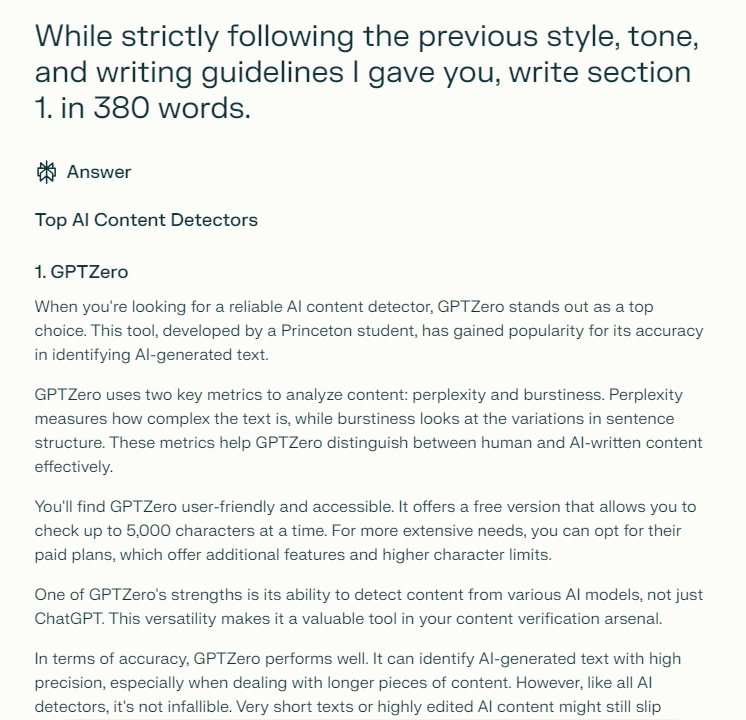
What it is:
A live-web answer engine with citations. Ask a question and get a concise answer with linked sources you can open. The Deep Research mode runs many searches in the background and returns a structured report—great when you need more than a paragraph.
Features:
- Citation-first answers for quick fact-checking. Basic searches are unlimited; “Pro”/multi-step searches have daily caps by plan.
- Deep Research generates longer, source-rich reports automatically (helpful for backgrounders and project proposals).
- Student offers: 1 month of Perplexity Pro free with SheerID verification; campus programs often extend access.
- New ecosystem: the Comet browser and integrations are rolling out; expect tight browsing + research features over the year.
Pricing:
- Free tier with unlimited concise searches and a limited number of Pro searches per day. (Exact limits vary; Perplexity’s plan pages describe caps by tier.)
- Pro is $20/month or $200/year for higher limits and premium models. Enterprise Pro adds team controls (~$40/seat). Student promos can cover a Pro month.
Consensus
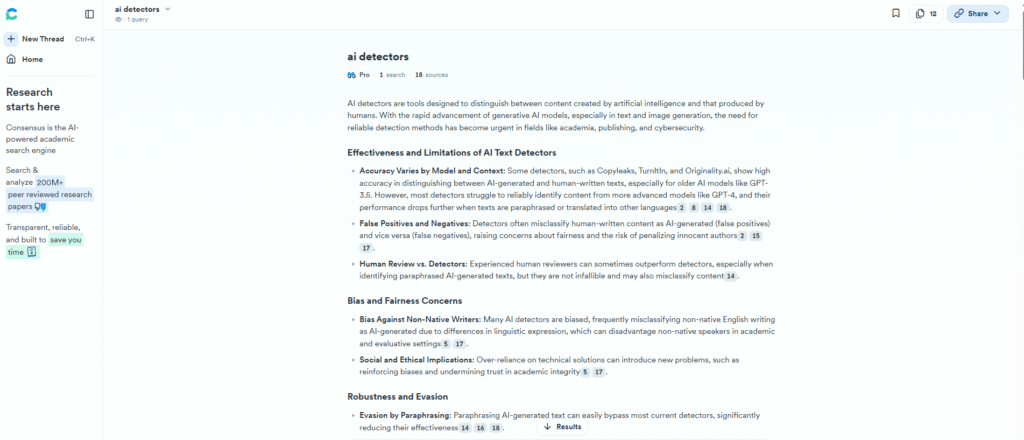
What it is:
An academic search engine that answers with evidence from peer-reviewed papers—so you can see what studies actually say. Good for “What does research find about X?” moments, literature scans, and finding consensus vs. disagreement on a claim.
Features:
- Searches a very large paper corpus (200M+ papers reported on help/FAQ pages) and surfaces evidence-based summaries with citations.
- Study Snapshots extract key attributes (design, sample size, outcomes) so you don’t miss important details while skimming. Library guides highlight this feature for students.
- Designed to keep you inside the literature—click through to originals easily for proper reading and citation.
Pricing:
- Free plan available (good for basic lookups and reading abstracts/summaries).
- Paid plans unlock deeper searches and analysis. The help center lists Pro and Deep tiers, with the Deep plan adding high-volume “Deep Searches.” Pricing pages change; check the current matrix when you sign up.
Elicit
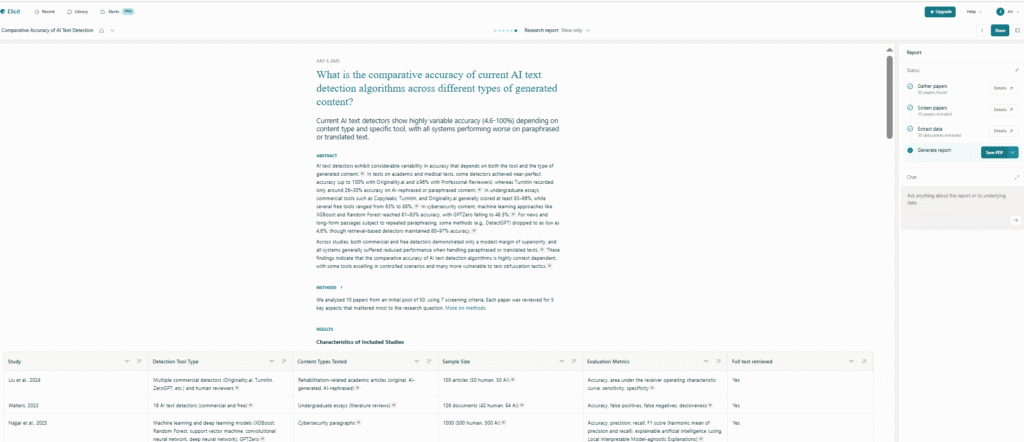
What it is:
A research assistant for literature reviews. It searches a large academic corpus (via Semantic Scholar), pulls papers into a table, and extracts data you choose (methods, outcomes, limitations). Then it helps synthesize. It’s built to show where a claim came from in the paper, which is crucial for citations and honesty policies.
Features:
- Structured tables with customizable columns (e.g., population, intervention, results, limitations) to speed screening and comparison.
- “Ask Paper” and summary views so you can chat with one paper or several at once and get line-referenced answers.
- Data extraction across dozens or hundreds of papers (volume depends on plan). Useful when your instructor expects method-level detail.
- Built-in sourcing UX that points to the exact passage used—helpful for avoiding accidental misquotes.
Pricing:
- Free “Basic” plan for casual exploration (summaries, limited extractions, small multi-paper chats).
- Plus/Pro/Team tiers add more extractions per month, systematic-review workflows, exports (RIS/CSV/BIB), and alerts. The support site confirms both free and paid options and that annual plans discount the monthly rate.
SciSpace (Chat with PDF + Research Agent)
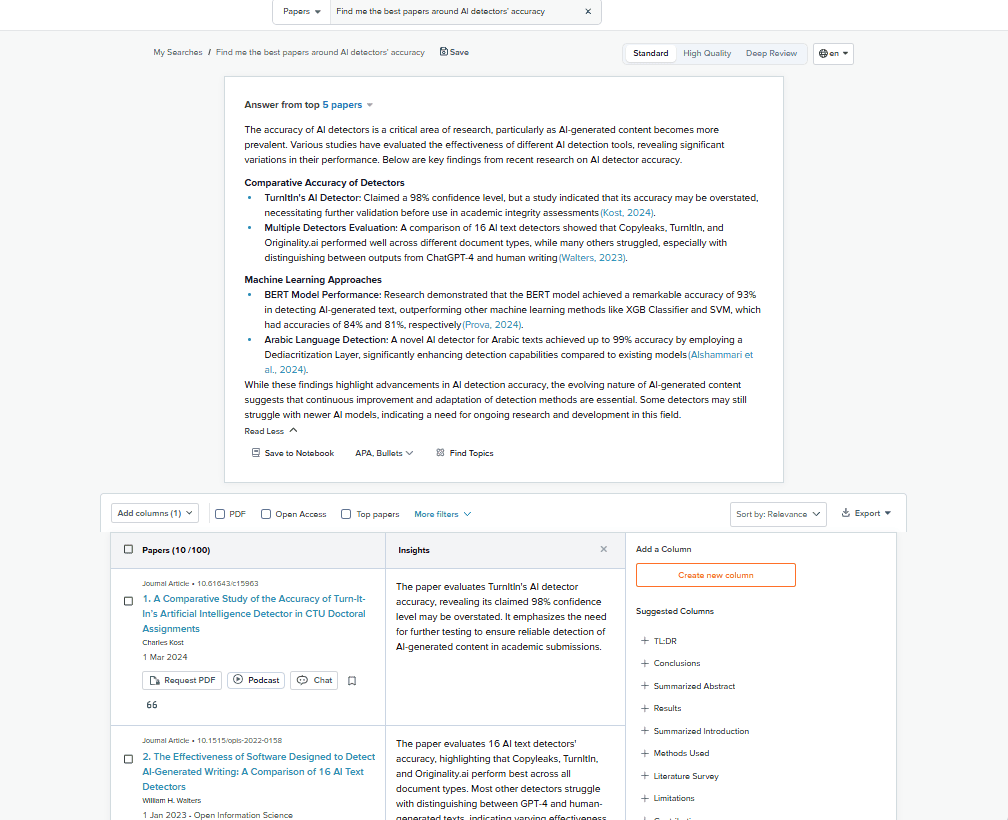
What it is:
A research workspace with Chat with PDF, a literature-review tool, and an AI writer that cites from a big scholarly index. It’s popular because the free Chat with PDF is easy: upload a file, ask questions, and get citation-linked answers pointing to exact sections. Great for reading heavy classes and capstone prep.
Features:
- Chat with PDF: ask targeted questions; answers link to a paragraph/figure so you can verify. Free tier exists and is simple to try.
- Research Agent: multi-tool flows for literature search, deep review, drafting, paraphrasing, and citation generation, powered by a 280M+ paper index. Useful once you move past basics.
- Web app with tutorials/workshops and a growing task library (e.g., “Review Literature,” “Write a Report”). Helpful for first-time users.
Pricing:
- Free for Chat with PDF (with usage limits).
- Premium plans unlock higher limits and the full “Agent” feature set; current pricing pages show monthly options and credits for AI tasks. Check the plan details before upgrading.
Grammarly (Free)

What it is
A writing assistant that fixes grammar and clarity in real time across browsers, Docs, Word, and email. Recent releases add optional AI agents (e.g., proofreader, citation finder) that work even on the free tier, so you get more than a spellcheck. Use it to catch issues fast and keep tone consistent.
Features
- Core checks: grammar, spelling, punctuation, clarity suggestions, and rephrasing. Works in most editors via extensions.
- Free AI tools hub with generators and utilities (e.g., citation helper, essay checker) in one place.
- Rolling AI agents for students/teachers (proofreader, citation finder, paraphraser); available to Free and Pro users per launch coverage.
Pricing
- Free plan with core checks and access to the AI tools/agents (usage limits apply). Upgrades unlock advanced suggestions and plagiarism checks.
Wordtune (Free)

What it is
A focused rewriter/summarizer with generous free daily actions. Great for transforming clunky sentences without changing meaning, or for condensing long notes into clean summaries.
Features
- Free plan includes up to 10 rewrites per day, 3 summaries per day, plus unlimited grammar/spelling corrections—enough for everyday study tasks.
- Browser extension and web editor for quick in-place rewrites; integrates with common sites and Docs.
Pricing
- Free tier with daily/ monthly caps disclosed in the FAQ. Paid plans (Advanced/Unlimited) expand generation and pro features.
Microsoft Copilot (Education access)

What it is
AI chat and writing help from Microsoft. Copilot Chat is free when you sign in with an eligible school account (Microsoft 365 A1/A3/A5). It won’t replace your writing tools, but it’s great for brainstorming outlines, refining drafts, or generating practice prompts—especially inside the Microsoft ecosystem.
Features
- Prompt for outlines, thesis options, counterarguments, and study questions. Works in browser and integrates with Microsoft services.
- Periodic promos add deeper access: e.g., a three-month free trial of Microsoft 365 Personal (U.S.) that includes Copilot in the Office apps—useful for Word/PowerPoint drafts when available.
Pricing
- Free Copilot Chat with A1/A3/A5 school licenses. Microsoft 365 Copilot (the in-app assistant for Word/Excel) is a paid add-on outside promos.
Wolfram|Alpha (Free & Pro for Students)

What it is
A computational engine for math, physics, chem, stats, and more. Use it to verify results, explore methods, and generate plots. Step-by-step and longer compute time live behind the student Pro plans.
Features
- Answers and visualizations for a huge range of STEM queries.
- Student Pro unlocks step-by-step solutions, guided calculators, extended compute time, file uploads, and enhanced mobile features.
Pricing
- Basic: free with sign-in (no step-by-step).
- Pro (Students): $5/month billed annually (listed as $9.99 monthly; $60/year), with step-by-step and extras. Pro Premium adds more compute and file size.
Mathpix Snip (OCR for equations, LaTeX & STEM docs)

What it is
An AI OCR tool built for STEM. Converts screenshots, handwritten equations, tables, and chemistry diagrams into clean LaTeX/MathML/Markdown or Word. Ideal when notes or PDFs must become editable problem sets or lab reports.
Features
- One-click OCR from screen or images; high-accuracy conversion for math and chemistry. Exports to LaTeX, DOCX, Markdown, HTML, and more.
- Syncs across desktop, web, and mobile; integrates well with Overleaf and Word.
- Student/educational perks (extra free usage with .edu emails; details adjust over time).
Pricing
- Free & Educational plan with a limited number of images/PDF pages, often increased when you sign up with a school email. Pro plans expand quotas.






